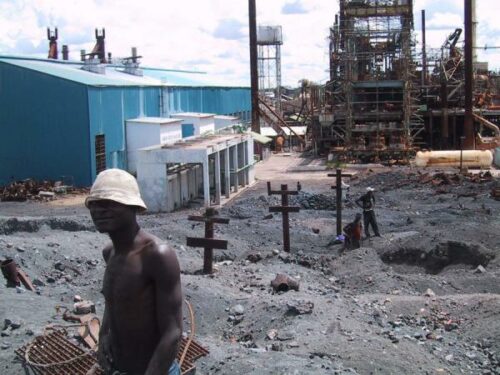South African Attorneys have filed a lead poisoning class action lawsuit against Anglo American South Africa Limited on behalf of a class that could potentially exceed more than 100,000 Zambian children and women of childbearing age.
The claim arises from environmental contamination of villages in close proximity to the Kabwe lead mine (formerly Broken Hill Mine). Medical studies conducted over the past 45 years have consistently shown massive levels of lead in a significant proportion of young children in Kabwe.
The class action seeks compensation for lead poisoning of these children and for women under 50 who have been poisoned who have, or may become pregnant, in the future. The cost of remediation of homes and of future blood lead screening is also claimed.
It is hoped that the class action will lead to: (a) the establishment of a blood lead level (“BLL”) screening system for children and pregnant women in Kabwe; and (b) clean up and remediation of the area to ensure the health of future generations of children and pregnant women is not jeopardised.
The mine was in operation between 1906 and 1994 and is alleged to have been within AASA group control from 1925 until 1974. AASA, a South African subsidiary of London-headquartered multinational mining company Anglo American PLC, holds all the South African assets of the Group.
According to the Claimants’ experts approximately two thirds of the Mine’s total lead production was produced during the period when it was an Anglo American mine (1925-1974) and a corresponding proportion of the lead pollution present in the environment of Kabwe District today was caused during this time.
It is alleged that AASA is liable because it played a key role in controlling, managing, supervising and advising on technical, medical and safety aspects of the operations of the mine, deficiencies in which resulted in heavy contamination of the local environment with lead.
It is also alleged that the risk of lead poisoning of the community was, or ought to have been, foreseen at the time by AASA and that AASA was negligent in that it failed to ensure that any or any adequate steps to minimise the risk of harm to the community were taken.
Anglo American’s current Group Human Rights Policy states that: “Where we have caused or contributed to adverse human rights impacts we will contribute to their remediation as appropriate.”
In an October 2020 speech, Mark Cutifani, Chief Executive of Anglo American stated: “We are acutely aware of the deep and lasting effects of our history as an industry. I would even go as far as arguing that we are one of the very few industries that has had to reckon with the legacies of our past in a real and progressive way. While our progress is encouraging, we are still not where we need to be”
A Pure Earth cleanup project in Kabwe, which began in 2015, states: The current CDC recommended level of lead in children’s blood is 5 ug/dL. Levels in excess of 120 ug/dL can potentially be fatal. In some neighborhoods in Kabwe, blood concentrations of 200 ug/dL or more were recorded in children, and records show average blood levels of children tested ranged between 50 and 100 ug/dL. Children who play in the soil and young men who artisanally mine the area are most at risk.
The report goes on to say, the Zambian government has made significant progress in dealing with the issue, particularly through a World Bank and Nordic Development Fund remediation program from 2003 to 2011. Despite these efforts, the site still poses an acute health risk that will require further work.












